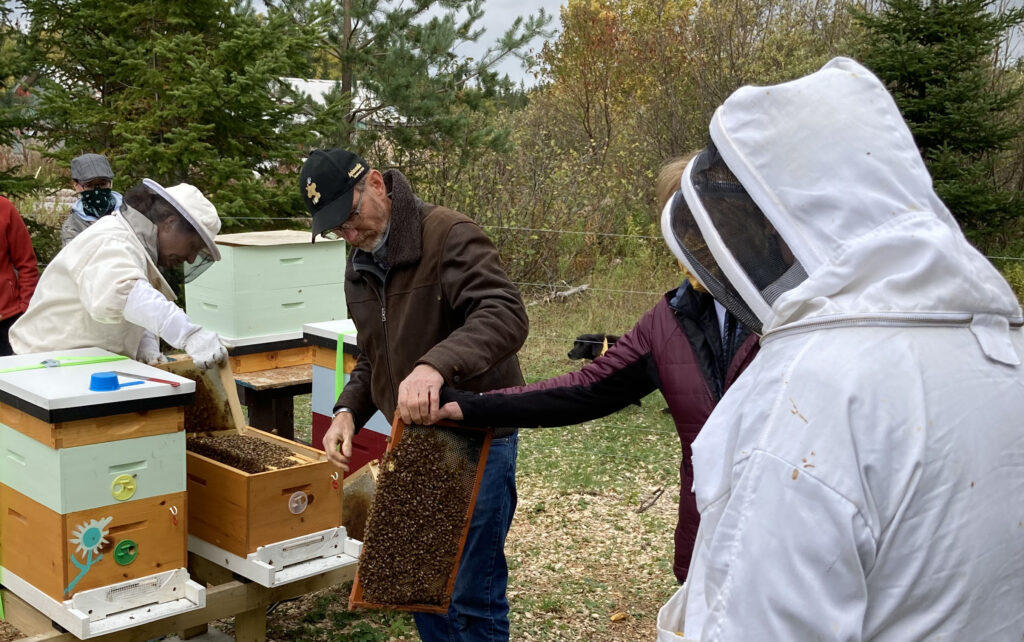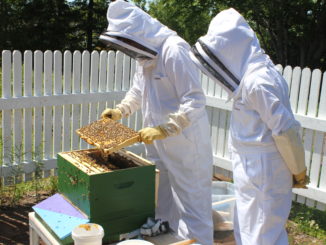Beekeepers across the island have been banding together to ensure a deadly parasite doesn’t reach their hives. Now that they have government support, they are pushing for bigger changes.
Tanner Hudson
Kicker

Last June, a change in legislation made it easier for Newfoundland’s beekeepers to protect their hives. But as time has passed it’s clear that their work is not yet done.
Newfoundland’s bees are unique. Because the bees are isolated on the island, Newfoundland’s bee population has avoided a parasite that has ravaged hives around the world. It is called Varroa destructor, an extremely contagious mite that carries diseases that leave hives wrecked.
Newfoundland is a rare case, with only a handful of other places around the world having managed to avoid the pest.
Peter Armitage, a co-founder of the Newfoundland and Labrador Beekeeping Association, is one of the main voices speaking up about the threat of Varroa destructor.
“It’s sort of like COVID, in a way, like it’s as contagious as COVID,” Armitage said. “If there’s a single Varroa mite, and we do not catch it, all of our bees will have it.”
The Newfoundland and Labrador Beekeeping Association lobbied for better control over bee trading in and out of Newfoundland. The Newfoundland government listened and, in June of last year, made a change to legislation that allowed for better tracking of bees from the mainland. It also supplied a grant of $300,000 to the Beekeeping Association.
“The money has been spent on training,” said Rodney Reid, president of the association. “We’d bring in experts and show beekeepers the signs of Varroa, so they know what they’re looking for.”
But this would not be the end of the discussion. The association says more legislation is needed.
The association says the province should enact legislation requiring beekeepers to be registered. Such registration would make contact tracing easier. In case one hive was infected, nearby beekeepers could be alerted.
The association would also like to see stiffer fines for importing illegal bees. Under provincial law, if somebody smuggled in a hive and brought Varroa to Newfoundland, they would be charged a fine of $100.
“We’d all file civil suits against them,” said Armitage. “Then they’d lose their house, everything, because of the cost of our bees’ treatment. But for breaking the actual law, they’d have to pay almost nothing.”
Due to COVID-19, progress on the new legislation has been slow. The beekeepers, however, remain optimistic that progress will be made.


Be the first to comment